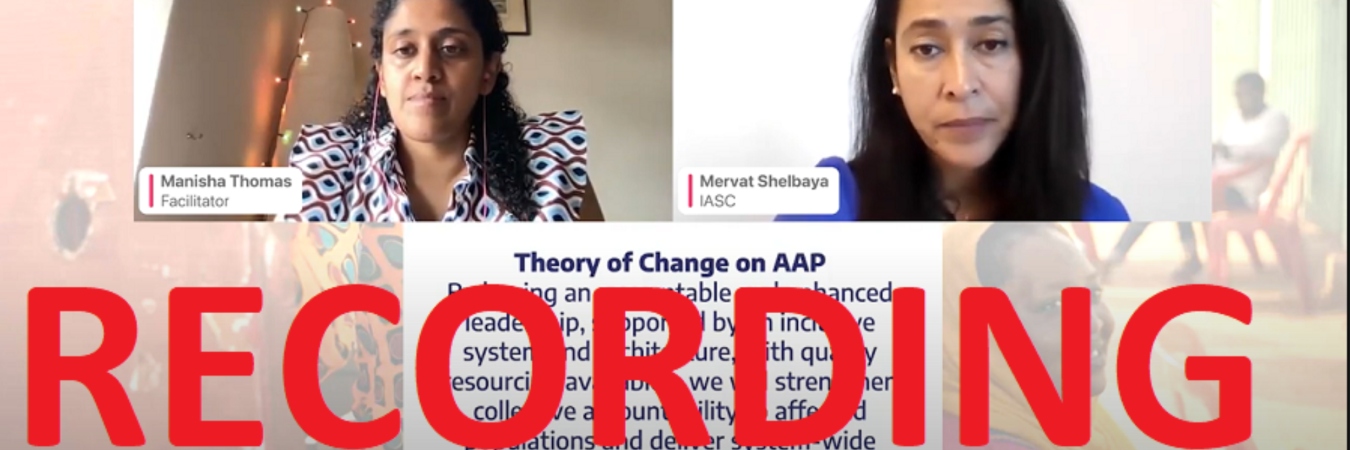
Available now-Recording of ECOSOC Side Event on Collective Accountability
Access the audio and video recordings of the ECOSOC Side Event on Collective Accountability
On 24 June, we held a discussion on collective accountability, organized by the new IASC Task Force on Accountability to Affected People (AAP) and hosted by PHAP, where we aimed to generate ideas and understand better what is needed to drive a system-wide change for greater collective accountability for people who have been affected by crisis.
During this live event, participants had the chance to hear from our dynamic panels of speakers, starting with Gloria Soma, Founder & Director of Titi Foundation in South Sudan, who shared her perspective as a person with experience of receiving assistance. She asserted that what true accountability meant to her, when everyone, no matter their status, can speak truth to power and hold those with authority to account for their actions. Mervat Shelbaya, Head of the IASC Secretariat, highlighted the IASC AAP theory of change which focuses on having an accountable and enhanced leadership, supported by an inclusive system and architecture, with quality resourcing available to strengthen collective AAP.
Emphasizing the importance of taking time and investing to really be serious about accountability to those populations being supported, was Najat Rochdi, the United Nations Resident and Humanitarian Coordinator for Lebanon. Cat Skehan, Collective Accountability Manager at CHS Alliance, introduced participants to the AAP Results Tracker, a new tool to understand what people think of a response at a collective level and how it will help those who will utilize it. It is structured around the nine CHS Commitments to affected people to inform evidence-based decision making.
Dr. Henia Dakkak, Head of Policy and Liaison Unit, Humanitarian Office and Emergency Coordinator for Surge, UNFPA, spoke on their work with partners in the Asia Pacific where they are focusing on being more inclusive in AAP approaches. Providing highlights on their gender twin tracking and the AAP efforts, was Isadora Quay, CARE International, Global Gender in Emergencies Coordinator. She spoke on how having standard AAP systems and having dedicated activities to ensure groups who historically don't use them such as women and girls, can start doing so. She spotlighted Women Lead in Emergencies (WLiE) as an example of dedicated activities on women’s participation and how it can help make AAP more inclusive.
Ashraful Haque, with the Start Network in Bangladesh, spoke on what should be done to make those individuals affected by crises part of the decision-making process of humanitarian responses and taking steps to hold humanitarian agencies accountable to people impacted by crises. Suzanne Steensen, Head of the Multilateral Organisation Performance Assessment Network (MOPAN) Secretariat, shared MOPAN’s recently produced report on how the business model needs to change to ensure commitments are actioned.
If you missed the chance to join us for this event, you can now access video and audio podcast format recordings on the event page.
Access the recordings